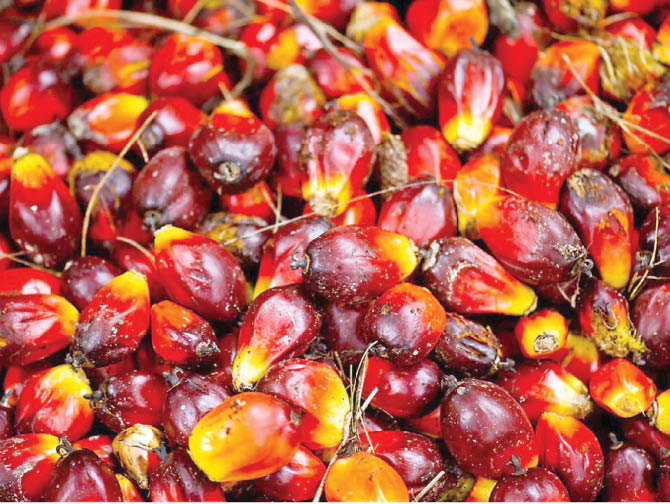An agribusiness expert, Mazi Nze Durugo, from Imo State, has disclosed that cross- breeding of species of palm fruits guarantees better quality and even increases quantity of palm oil when processed.
In an interview, he encouraged palm fruit farmers, who can, to cross breed in order to get the best of both species of palm fruit seedlings.
He said there is a difference between genetically modified palm fruit seedlings and improved palm fruits seedlings.
“Tenera, which is popularly called ‘agric’ is actually a cross breed between Pisifera specie (which is wild but rare) and Dura specie (which is also wild but common).
“Tenera is just an improvement on the palm fruit seedling. Both the Pisifera and Dura species are old breeds, older than one can ever imagine. The one referred to as native is actually the Dura specie. Whilst the Pisifera specie has more than 90 per cent of pulp, that is, the part that produces the red oil with little or no kernel, on the other hand, the Dura specie has less than 50 per cent of pulp and more than 50 per cent of kernel.
Ex-Senate President, Lawan loses mother
Soldiers rescue 7 kidnapped victims in Benue
“So, by cross breeding these two species of palm fruits, you get the best of both worlds – an improved palm fruit seedling, which is the Tenera specie now called ‘agric’.”
Durugo said the Tenera specie inherits a portion of the larger pulp of the Pisifera and part of the kernel qualities of Dura.
According to him, it is a simple agricultural practice called cross pollination.
The palm fruits entrepreneur said Malaysia and Indonesia only have this Tenera specie as well as the improved versions like the supergene, and they produce the best palm oil that tastes even better than the so-called native fruits.
He added that this Tenera specie also has longer shelf life than the native palm fruits in Nigeria, stating that the longevity and taste of the so-called native palm fruit oil is dependent on the method of preparation and preservation and not dependent on the specie.
“Majority of what our local millers process is native fruits yet we have plenty of bad tasting oil in our local markets.
“Moreover, what gives the oil the strong taste you’re referring to is the level of FFA (free fatty acid), which is usually high compared to world standard. This is principally so because we allow the fruits to ferment before commencing the process of milling it.
“In other words, we tend to keep the bunches for days for them to ferment before we can pluck the fruits out of the bunch.
“Keeping the bunches for this long allows the FFA to build up. It’s this FFA that gives it the strong taste you’re referring to as being good but unfortunately unhealthy whereas with that strong taste, most international buyers will not consider buying it.”

 Join Daily Trust WhatsApp Community For Quick Access To News and Happenings Around You.
Join Daily Trust WhatsApp Community For Quick Access To News and Happenings Around You.


